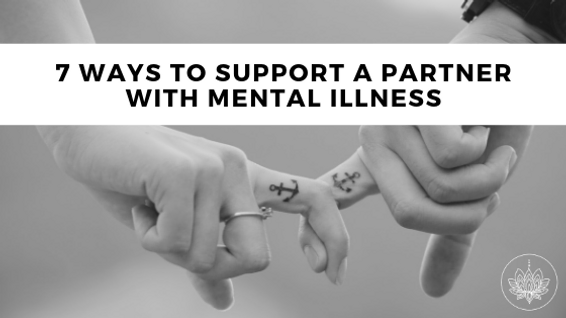Mental illness is tough on anyone who experiences it, but can also be very hard on a relationship. Often, coping with the illness becomes the foundation of the partnership. What’s more, when relationships are under stress, partners naturally begin to distance themselves from one another, physically and emotionally. This can lead to increased levels of frustration and despair which, for the person suffering from a mental illness, can be amplified. At times, both partners can be suffering with symptoms resulting from the original illness in one of the partners.
Trying to understand the needs of your loved one who has a mental illness is difficult. You may not know how to support them whilst still maintaining your own sanity. However, a healthy relationship can have immense curative effects on someone suffering from a mental illness. And, mental illness doesn’t have to break up a relationship. Here are some ways we at Mind and Body Counseling Associates, Reno, Nevada, have gathered to help you maintain a healthy relationship when your partner has a mental illness.
Be Supportive and Sympathetic
Receiving the diagnosis of a mental illness can be scary, distressing and embarrassing. Often, the sufferer will wonder whether or not you still love or desire them and if you wish to remain committed to them. Therefore, it is essential that, right from the get go, you squash these fears by assuring them you are there for them through thick and thin.
Get Educated
Despite the improved awareness around mental illness, we still have a long way to go. There remains a ton of misinformation related to mental illness and how to support a loved one experiencing it. The best way to go about getting educated on mental illness is to approach credible medical professionals, literature, and/or online information. Organisations such as the National Alliance on Mental Illness (NAMI), Depression and Bipolar Support Alliance (DBSA), or Mental Health America (MHA) are good places to start.
Listen to Your Partner
Perhaps one of the best ways to support your loved one going through a mental illness is to simply listen. Mental illness affects everyone differently, which is why it is imperative that you listen to what your partner has to say in order to better understand their experience. For example, if your significant other has been diagnosed with generalised anxiety disorder, experts advise not minimising their fears by trying to assure them everything will be fine. Instead, enquire more about their concerns and then listen and support their efforts to create a solution.
Don’t Try to be the Therapist
While we certainly recommend educating yourself on the ins and outs of your partner’s mental illness, we do not advise you take on the role of their therapist (even if you may be one!). This is not a long-term solution and will only make matters worse. It is important for you to let a professional outside of your relationship do their job in assisting you and your partner with the issue. Furthermore, your loved one will need to take steps to manage their illness (on their own), which will be more difficult to accomplish with you calling all of the shots.
Seek Counseling
In line with the above, we strongly recommend that you and your significant other seek both individual and couples counseling in order to deal with their mental illness. Just like when you have the flu, you go to your GP. When one of you has a mental illness, you go to a counselor. Counseling is a great resource is help you gain perspective, direction, and a sense of balance in a situation that can get messy very quickly. Being in a relationship with someone who suffers from a mental illness can leave you feeling arbitrary emotions you are sometimes ashamed to admit, such as hate, frustration or anger. These are normal and, even, allowed. You may also be feeling emotionally exhausted. Whatever your feelings, therapy can help you work through each and every one of them in an effective, healthy manner. Couples counseling can also help you both construct expectations and healthy boundaries to deal with issue.
Take Care of Yourself
Self-care is not selfish. It is, especially in this case, imperative to the well-being of you and your partner. If you do not adequately look after yourself, you expose yourself to mental illness and / or the breakdown of your relationship. “Caregiver fatigue” is a common phenomenon in these situations. Ensure you are getting enough sleep, exercising, eating properly, spending time with friends and family, and / or doing things you love.
Prioritise Your Relationship
Mental illness and the associated symptoms can be overwhelming. However, it’s vital to prioritise your relationship the way you would if mental illness wasn’t a factor. Be sure to spend quality time with your loved one and make an effort to show your love for them. Honest, loving communication can help avoid both of you blaming all the relational issues on mental illness and will help you face other possible issues that may crop up as a result.


